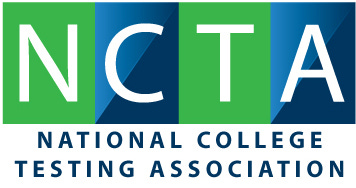High School Students "Cheating Their Way to a Diploma"
Plus, a survey says one in six U.K. students admits to cheating. Plus, more professional testing cheaters are caught.
Issue 135
To subscribe to “The Cheat Sheet,” just enter your e-mail address below:
To share “The Cheat Sheet:”
If you enjoy or support my work, please consider chipping in a few bucks via Patreon:
This issue of The Cheat Sheet is sponsored by the National College Testing Association (NCTA). The NCTA promotes professionalism and quality in the administration of testing services and programs by providing professional services and opportunities. Find out more about NCTA at
https://www.ncta-testing.org/
and register for their upcoming conference at https://www.ncta-testing.org/2022-conference.
Fresno High School Students “Cheating Their Way to a Diploma”
An outlet called GVWire, which I don’t know, has a story on high school students in Fresno, California cheating on online courses, remedial or make-good courses, delivered online. The headline is eye catching:
Are Fresno High Schoolers Cheating Their Way to a Diploma with Online Option?
My answer: probably.
The gist is that Fresno teachers have complained that students using an online credit recovery option to take missed or failed classes, are cheating. The story says:
FUSD teachers recently raised concerns that the district’s reliance on an online learning system called Edgenuity is allowing some students to cheat their way to a passing grade in just a few days of extra session work.
Several teachers complain about the course process in the story, with one saying,
“Quizlet and maybe Reddit are where most of the answers reside,” [the teacher] said. “All you do is type Edgenuity Quizlet.”
This would be another nothing story of high school students using Quizlet to cheat except for this bit:
The district’s reliance on Edgenuity has skyrocketed over the past three years. According to district data, in the 2019-20 school year 1,228 graduates — 31.6% of that year’s graduating class districtwide — took at least one Edgenuity course before graduating. The next year, the number of graduates taking an Edgenuity course rose to 2,583, or 65.24% of the graduating class. And so far in the current school year, 3,056 graduates, or 75.4% of the graduating class, took at least one Edgenuity course.
Excuse me, what?
Reading between the lines, it appears the district’s anti-cheating efforts in these online courses is basically teachers keeping “a sharp eye out” for it. For example, the article says one teacher:
noticed that three students appeared to be too far ahead in their Edgenuity course, and he suspected they were cheating.
I just don’t know what to say about that.
Survey: One in Six U.K. Students Admits to Cheating in Online Exams
You may remember a few months ago, Meazure Learning/ProctorU released data showing that about one in every 15 online test-takers cheated. See Issue 112 if you don’t.
Now, a new survey out of the U.K., reported by Times Higher Ed, puts that ratio at one in six admitting to cheating.
One in six. The nugget paragraph is:
One in every six university students in the UK have admitted to cheating while taking online exams in the past academic year but only 5 per cent of them were caught, according to a survey.
A few things. One, surveys that rely on students to self-report misconduct are reliably assumed to under-count it. In other words, the one in six number (about 17%), is probably low.
The survey also says:
52 per cent of those surveyed said they knew people who had cheated when taking a test online and 79 per cent said they believed it was easier to cheat when not in an exam hall.
Those are numbers we’ve seen before - half say they know someone who’s cheated and other surveys have shown that 80% or more of students say cheating is easier online - see Issue 94, or Issue 130, or Issue 85, or Issue 72. There are other examples.
Curious to me, the survey was commissioned by a law firm that represents students accused of misconduct - Alpha Academic Appeals (see Issue 16 or Issue 131). I don’t get that, candidly.
Nonetheless, Daniel Sokol, the “lead barrister” at Alpha told the paper,
“Sadly, there is little appetite for universities to recognise the significance of the problem, but it is of great importance to employers who rely on degree grades to aid recruitment.”
I’m surprised to say this, but he’s right.
Another Ad from an Attorney Seeking Academic Misconduct Clients
We’ve seen this many times. Here’s an ad disguised as an article for a law firm seeking to represent students accused of academic misconduct and other violations. The un-bylined article has this headline:
How Can a Student Discipline Attorney Help You?
And boy how they’d love to tell you.
For more examples of lawyer advertising for academic misconduct cases, see Issue 88.
As mentioned before, representing students in academic integrity cases is a growing and, I am assuming, profitable legal enterprise that foretells significant problems for educators and institutions.
More Professional Exam Cheaters Caught
Issue 131 highlighted the extraordinary $100 million fine levied against a big accounting firm for knowing and allowing its employees to cheat on required online ethics exams.
News comes now that FINRA, the accrediting agency for stock and other equity trading, has banned two people for cheating on their online exams. The article says the organization caught 12 others cheating on in-person exams. The online exams were proctored, though the article does not say how or by whom.
FINRA says the two being banned:
used public internet forums to find exam answers while taking online exams.
I bet they did. If an exam is online, you can be sure the answers are too.



